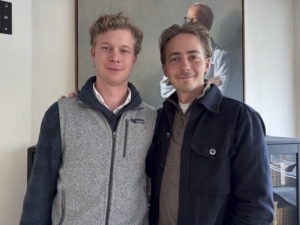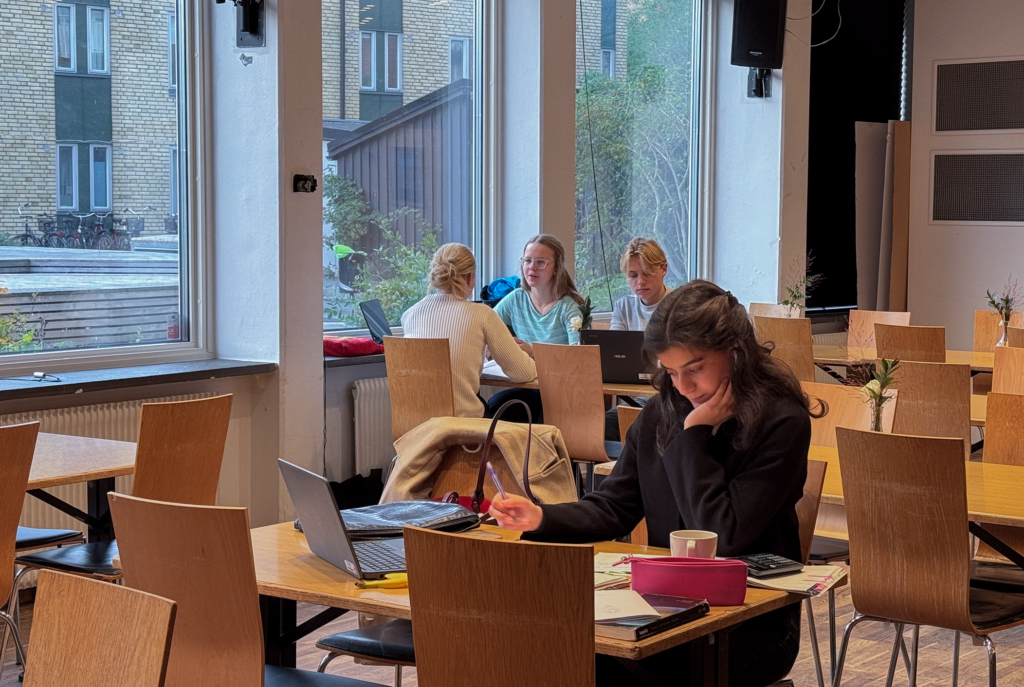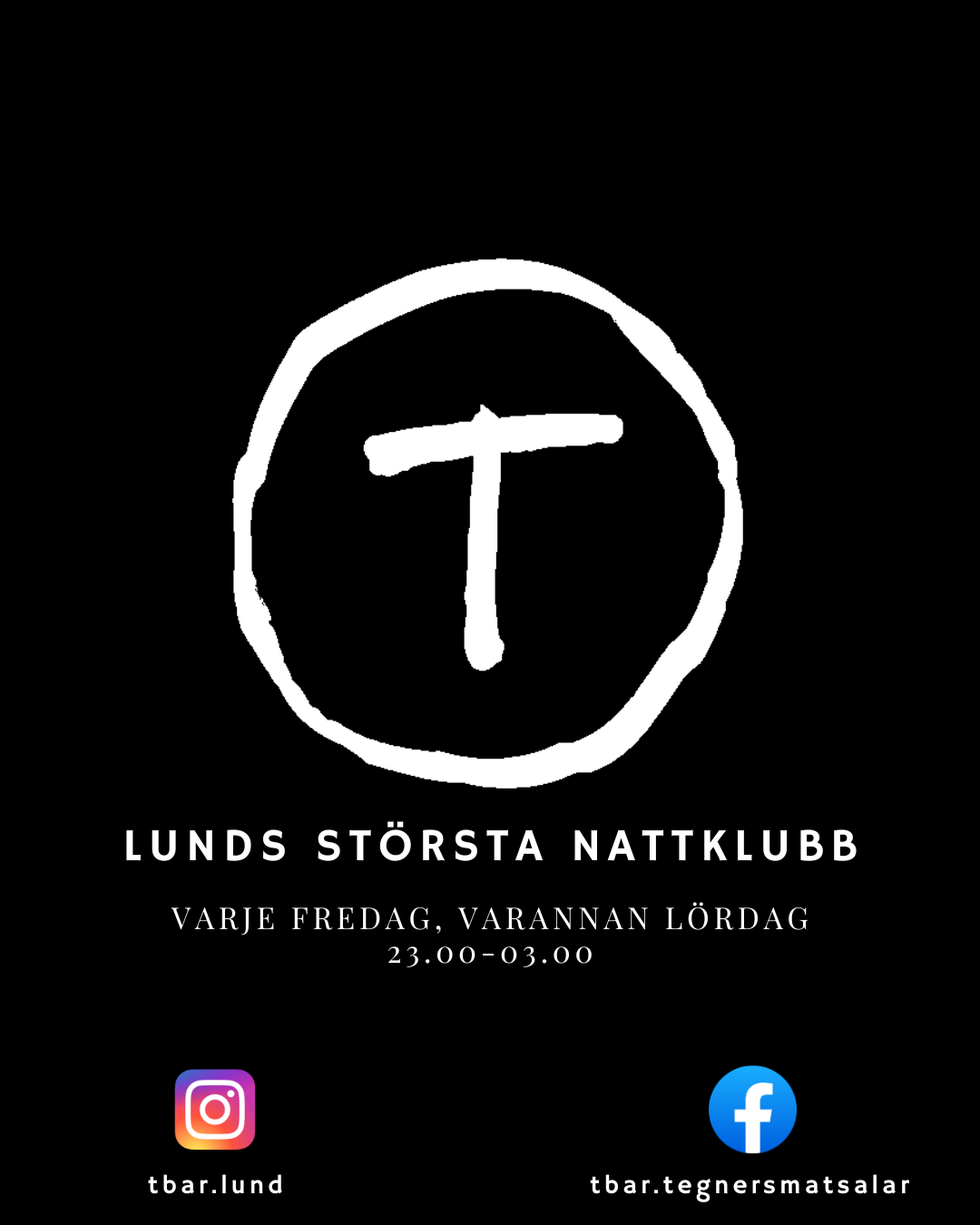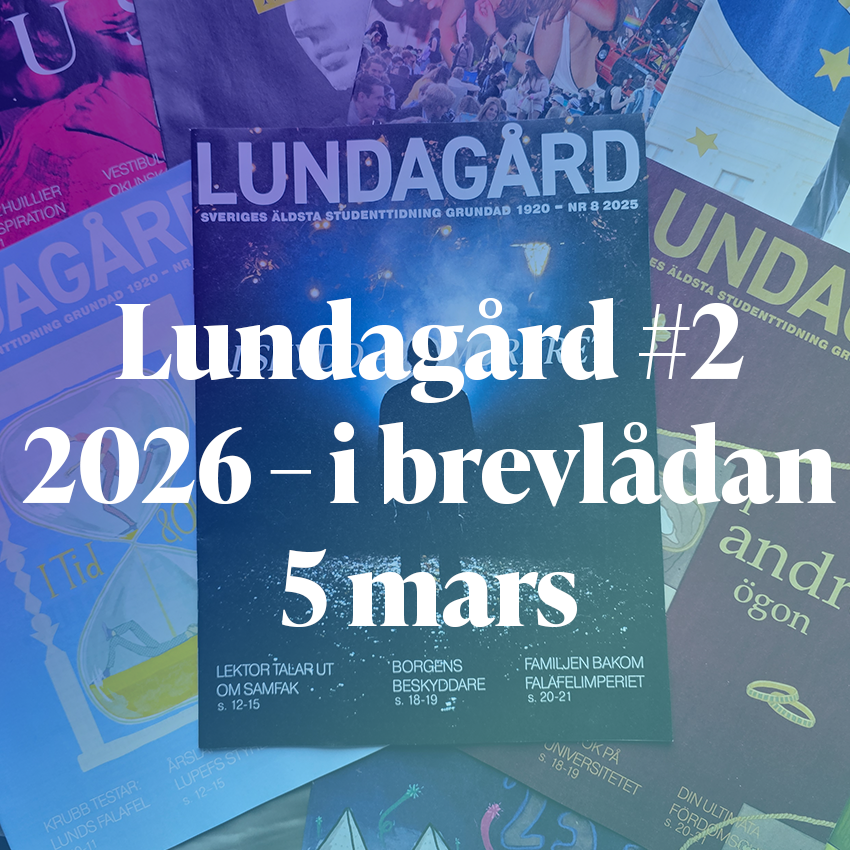During the fall semester, Malmö Nation has been offering free homework sessions for upper secondary and high school students. The initiative, called Läxhjälpen, was made possible by a donation from the Red Cross and aims to provide school assistance for younger students.
Nations are known for their big events and social life outside of university work. Malmö Nation, however, believed there was a need for more charity work within their organisation.
– We thought there was absolutely room for us to do a project like this and to help younger students in Lund with their homework, and hopefully inspire them for studies, but also to help everyone get through school. A big part of it is that we could do it for free, says Patrik Utterström, law student at Lund University and one of the founders of Läxhjälpen.
Gustav Dyhre and Patrik Utterström explain that their main goal for the program is to make it a part of Malmö Nation’s identity and regular services. The program aims to continue its current weekly sessions, Mondays from 16:00-19:00 at Malmö Nation, and potentially increase the number of sessions per week.
Läxhjälpen emphasizes the wide range of academic help that is offered during the homework sessions. The helpers are active or regular members of Malmö Nation who have a strong academic background. Currently, Läxhjälpen consists of 15 members and four to six of them are present at each weekly session.

of Läxhjälpen. Photo: Maya Berger.
– It doesn’t just have to be schoolwork. It could be preparing for the SweSAT, or maybe you’re graduating high school and want to apply for a summer job and need to get your CV done, says Gustav Dyhre, Industrial Engineering and Management student.
– If you’ve never done it, you could ask us, because we have all done it before, he continues.
Läxhjälpen aims to create a quiet and welcoming environment that allows students to receive academic help, advice for future academic paths, or to ask questions about career options.
– What we are trying to do really, is to create a study hub where our members can come and hang out. The helpers can do their own studies as long as they’re available to help others and create this little ecosystem of people helping each other, says Patrik Utterström.
An additional goal of creating this environment is to encourage students to ask for help.
– We have seen some trends with people coming here for the first time. It’s not like they are raising their hands and asking for help. So, you have got to introduce yourself and push them in a direction to ask for help. That often starts with having some general conversations, says Gustav Dyhre.
Läxhjälpen’s members understand what it was like to be a timid and shy upper secondary or high school student, therefore, they want to make younger students feel comfortable asking for help from someone other than their family or friends.
As the program is relatively new, Patrik and Gustav expressed that their main problem right now is reaching more students. Currently, the Red Cross Youth Organization is helping Läxhjälpen advertise the program, along with visits to the local schools in Lund to inform students that these homework sessions are free and available for everyone.
Läxhjälpen stresses that the sessions are not only beneficial for the attending pupils, but also for the university students. By teaching others and organizing study sessions, university students can improve their own learning.
– You get something out of it. Not only because you help them, you also help yourself. It sounds selfish, but it’s also the truth. To help others is to help yourself as well, says Gustav Dyhre.
Gustav and Patrik also want to encourage other nations to get involved in charity work to enhance the impact they make in a university town like Lund. They emphasize that it can be done without the kind of donations they receive themselves.
– I think something else that would be nice is to inspire other student organizations or other students to engage in charity projects. You can do it through your nation or your student association, says Patrik Utterström.
This article was first published in Lundagård #7 2025.










